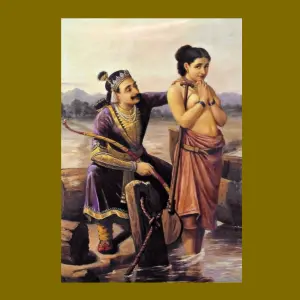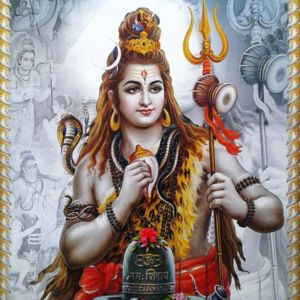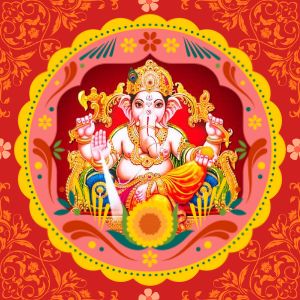Recommended for you
Satyavati - The Powerful Queen in Mahabharata

Satyavati is one of the main characters in the Mahabharata. Learn about her backstory and how she helped shape the future of Kuru Vamsha.....
Click here to know more..Tryambakam yajamahe in different formats

om shreegurubhyo namah' harih'om samhitaapaat'hah' tryambakam yajaamahe sugandhim pusht'ivardhanam. urvaarukamiva bandhanaanmri'tyormuksheeya maa'm....
Click here to know more..Pancha Sloki Ganesha Puranam

shreevighneshapuraanasaaramuditam vyaasaaya dhaatraa puraa tatkhand'am prathamam mahaaganapateshchopaasanaakhyam yathaa. samhartum tripuram shivena ga....
Click here to know more..
Children's Section
Parenting
Click on any topic to open
- 35 Fundamentals Of The Growth Of A Child
- 34 Children Will Be Healthy, Well Behaved, And Intelligent If These Rules Are Observed
- 33 About Moral Education in Sanatana Dharma
- 32 Samskaras Bring Divine Qualities Into The Child
- 31 How To Teach Children Good Habits
- 30 Spirituality Should Be 24 X 7
- 29 Teaching Children Value Of Money
- 28 If you stop growing then you are not living anymore
- 27 How you should instill good qualities in children
- 26 Choosing the Right Career Path for Your Child – What You Should Know
Please wait while the audio list loads..
30
Ganapathy
Shiva
Hanuman
Devi
Vishnu Sahasranama
Mahabharatam
Practical Wisdom
Yoga Vasishta
Vedas
Rituals
Rare Topics
Devi Mahatmyam
Glory of Venkatesha
Shani Mahatmya
Story of Sri Yantra
Rudram Explained
Atharva Sheersha
Sri Suktam
Kathopanishad
Ramayana
Mystique
Mantra Shastra
Bharat Matha
Bhagavatam
Astrology
Temples
Spiritual books
Purana Stories
Festivals
Sages and Saints
